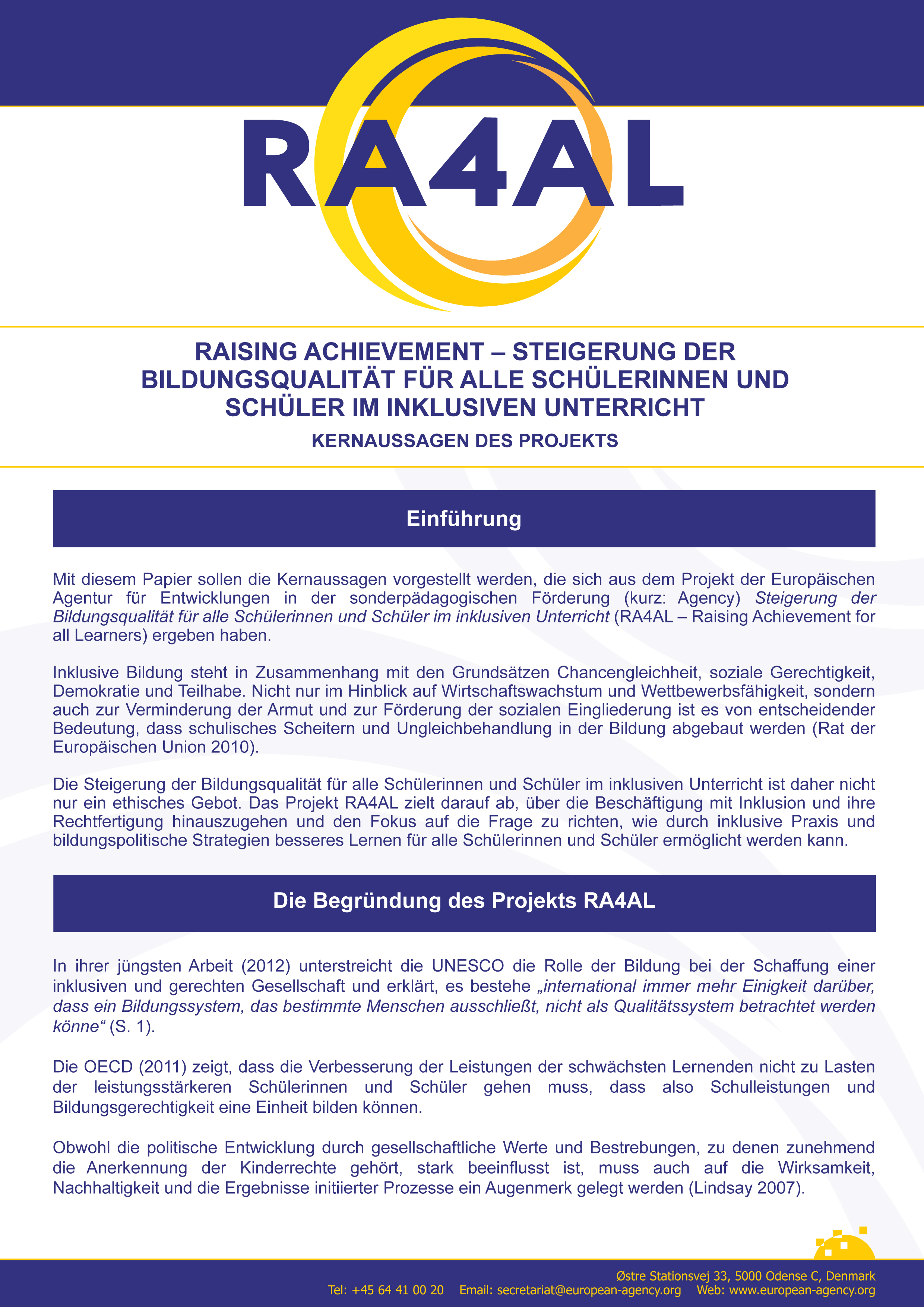The Raising Achievement for All Learners (RA4AL) project (2011–2012) set out to identify the issues that need to be explored and strategies at the policy level that appear to be successful in raising the achievement of all learners.
This report synthesises the key issues and findings arising from the RA4AL conference and other activities carried out during the one-year project, including a review of past Agency projects and recent academic research. It aims to collate information about how best to engage all learners and raise their achievement.
The RA4AL project identified six themes:
- Collaborative policy and practice. To engage and support all learners, but in particular those who may face disadvantage, services should be provided in local communities through close collaboration – in policy and practice – between education, health, social services and other agencies. Co-operation and networking is needed at all levels – national, local area, school and classroom – between all stakeholders, learners and families to ensure both co-ordinated responses and effective use of resources.
- Support for school and system leaders. School and system leaders should receive support to ensure that they have the vision and the necessary competences to establish a positive ethos and provide appropriate leadership for inclusive practice. Planning to meet the diverse needs of all learners should become an integral part of the whole area/school development process, which should in turn bring all current priorities together in a coherent way.
- Inclusive accountability. Approaches to system and school accountability should include a strong element of self- and/or peer review to empower stakeholders and should ensure consistency and reinforce inclusive values and practice.
- Personalisation through listening to learners. The learner's voice is key in shaping all policy and practice. Personalisation also involves working more closely with parents and families to address any support requirements more holistically.
- Professional development for inclusive education. Teachers must be active agents in any system/school change. Both initial teacher education and continuing professional development must address teachers' competences. All teachers must develop the necessary values, attitudes, skills, knowledge and understanding to ensure the learning and full participation of all learners in every classroom.
- Pedagogical approaches for all. In view of work by the Agency, further supported by recent international research, it is evident that there are pedagogical approaches that benefit all learners. These include, for example, team teaching and peer-assisted learning. However, further research is needed on effective strategies to support learning and the management of heterogeneous groups in practice.
The report explores these themes in more detail and discusses some of the key challenges.
For more information, visit the RA4AL project web area. A summary of key project messages is available in 22 languages.
Download the report below in English.

